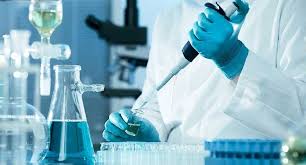India Strengthens Pharmaceutical Self-Reliance Through Production Linked Incentive (PLI) Scheme
Government’s Initiative to Reduce Import Dependence on China and Boost Domestic API Manufacturing The Government of India is taking decisive steps to enhance domestic manufacturing of Active Pharmaceutical Ingredients (APIs), Key Starting Materials (KSMs), and Drug

Government’s Initiative to Reduce Import Dependence on China and Boost Domestic API Manufacturing
The Government of India is taking decisive steps to enhance domestic manufacturing of Active Pharmaceutical Ingredients (APIs), Key Starting Materials (KSMs), and Drug Intermediates (DIs) through the Production Linked Incentive (PLI) Scheme. This initiative is aimed at reducing India’s heavy reliance on imports, particularly from China, for essential pharmaceutical ingredients, ensuring a more resilient and self-sufficient healthcare ecosystem.
Background and Significance of the PLI Scheme for Pharmaceuticals
India is one of the largest producers of generic medicines in the world, supplying nearly 20% of the global demand. However, the country has historically depended on imports for nearly 70% of its APIs and intermediates, making the pharmaceutical supply chain vulnerable to global disruptions. The COVID-19 pandemic further underscored the need for domestic capacity building to avoid supply chain disruptions and ensure uninterrupted access to essential medicines.
In response, the Government of India launched the PLI Scheme for Pharmaceuticals in 2020 with an initial financial outlay of ₹6,940 crore ($850 million). The scheme is designed to provide financial incentives over a six-year period (2021–2027) to encourage the domestic production of critical bulk drugs, APIs, and DIs that are vital for India’s pharmaceutical industry.
Key Achievements Under the PLI Scheme
1. Boosting Domestic API Production
As of March 2025, domestic production of 38 critical APIs has already begun, significantly reducing dependence on imports.
APIs such as Penicillin G, Clavulanic Acid, and several high-value antibiotics and analgesics—previously imported from China—are now being produced within India.
The country has witnessed a 50% reduction in import dependence for several high-demand drug ingredients.
2. Establishment of Greenfield Manufacturing Plants
Under the PLI Scheme, 35 new greenfield manufacturing facilities have been sanctioned across various states, including Gujarat, Maharashtra, Himachal Pradesh, and Andhra Pradesh.
Two major bulk drug parks have been approved in Himachal Pradesh and Tamil Nadu, aimed at consolidating pharmaceutical ingredient production and ensuring cost competitiveness.
These plants will contribute to the production of APIs like Atorvastatin (cholesterol-lowering drug), Acyclovir (antiviral medication), and Metformin (diabetes treatment), helping to fortify the domestic pharmaceutical landscape.
3. Reduction in Import Dependence on China
India’s API imports from China, which previously accounted for nearly $3.5 billion annually, have already started to decline due to increased domestic production.
By 2027, the government aims to cut API imports by 75%, reducing risks associated with external supply disruptions.
4. Attracting Investments and Job Creation
The scheme has mobilized over ₹2,500 crore ($300 million) in private sector investments, with more companies expanding their manufacturing capacities.
The initiative has created over 25,000 direct jobs and an estimated 50,000 indirect employment opportunities across the pharmaceutical sector.
Several domestic and international pharma companies have set up API production units in India, enhancing the country’s role in the global pharmaceutical supply chain.
Government’s Commitment to Strengthening Healthcare Infrastructure
The Government of India remains committed to achieving pharmaceutical self-reliance as a part of its broader Atmanirbhar Bharat (Self-Reliant India) vision. The PLI Scheme is strategically designed to not only enhance domestic drug manufacturing capacity but also boost exports, making India a global hub for pharmaceutical ingredients.
Speaking about the progress of the PLI scheme, Union Minister for Chemicals and Fertilizers, Dr. Mansukh Mandaviya, stated:
“The success of the PLI Scheme marks a new era for India’s pharmaceutical sector. By strengthening domestic production of APIs and bulk drugs, we are ensuring affordable, high-quality medicines for our citizens while positioning India as a global leader in pharma manufacturing.”
Future Roadmap and Policy Expansion
The next phase of the PLI Scheme aims to extend incentives for biopharmaceuticals, gene therapies, and advanced drug formulations, further expanding India’s pharmaceutical capabilities.
The government is also exploring collaborations with research institutions and private companies to develop indigenous alternatives to imported raw materials.
Plans are underway to enhance pharmaceutical R&D funding to develop next-generation APIs, biosimilars, and novel drug formulations, making India not just a manufacturer but also a global innovator in healthcare solutions.
Conclusion
The PLI Scheme’s success underscores India’s growing pharmaceutical self-sufficiency and global competitiveness. With the rapid expansion of domestic API production, reduced dependence on imports, and a thriving investment climate, India is poised to strengthen its position as the “Pharmacy of the World” while ensuring national health security.






